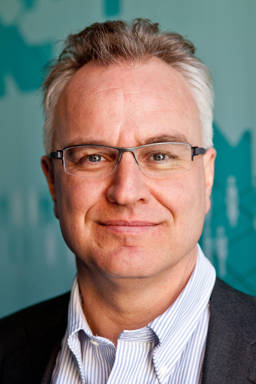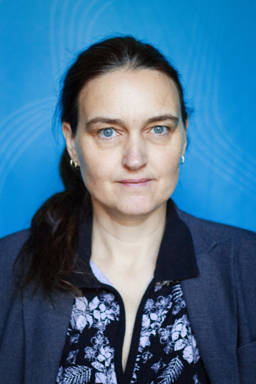India
MigrationRhythms Survey Documentation Published Ahead of Open Access Dataset
A new PRIO Paper offers in-depth documentation of the MigrationRhythms survey, shedding light on urban middle classes, social mobility and internal & international migration across four major Asian cities.
Conference on Digital Designs – from Unique ID to CBDC
'Digital Designs - from Unique ID to CBDC' was co-organized by PRIO and the Maharashtra Institute of Technology-World Peace University (MIT-WPU) at MIT-WPU's campus in Pune, India, 9-10 February 2024.
Stateless in the Bengali borderlands — Funding in Place for New Project
The project will investigate the current crisis of statelessness affecting millions of people in the Bengali borderlands, including the Rohingya population of Myanmar and Bengali Muslims in the Northeast Indian state of Assam.
Project Funded: e-Topia: China, India and Biometric Borders
How is e-governance and the Internet of Things (IoT) changing the everyday lives of the people of India and China, and how are these multifaceted changes affecting international relations?Congratulations to Åshild Kolås, who will lead the project e-Topia: China, India and Biometric Borders, which has now received 4-year funding from the Foreign Policy programme of the Research Council of Norway.
PRIO Global Fellow Sanjib Baruah discusses India’s National Register of Citizens
Even in the context of contentious debates on immigration in Europe and the United States, people rarely question the capacity of their governments to identify their citizens and distinguish them from non-citizens living in the country.
Glemte konflikter: PRIO Podcast i sommer
I juni ble årets konfliktdata fra Uppsala universitet lansert i Journal of Peace Research.
Two new books on Women, Peace and Security in India and Nepal
Åshild Kolås, PRIO Research Professor, has published two new books on Women, Peace and Security in India and Nepal.
Launch of Task Force report on Blue Economy Vision 2025
with Task Force member Ruchita Beri, IDSA
Conference Report on 'Food Security Debates in India: Experiences from the Grassroots'
International Conference held in Varanasi, India, on 28-29 September 2016
Call for Papers: Northeast Indian Enigmas: Exception, Extraction and Bare Life
Special Issue of Alternatives: Global, Local, Political edited by Åshild Kolås
Launch of the book “The Modi Doctrine: New Paradigms in India’s Foreign Policy”
Editors: Anirban Ganguly, Vijay Chautahiwale, Uttam Sinha
Professor Sanjib Baruah Visits PRIO
Professor Sanjib Baruah is a guest researcher at PRIO in July.
PRIO Gender, Peace and Security Update (Issue 1-2016)
Women Engaging in Islamic Charity as ‘Development Agents’
Conference on India's Role in Global Nuclear Governance at IDSA, New Delhi, 24-26 February 2016
Three-day IDSA-PRIO conference featured presentations by key experts from India, Europe, South Africa, Russia, Australia, and the USA
Workshop on India’s Role in Global Nuclear Governance
IDSA-PRIO workshop held at Thon Hotel Vika Atrium, Oslo
Successful Doctoral Defence by Elida Kristine Undrum Jacobsen
Elida Kristine Undrum Jaocobsen has on Monday 25 May 2015 successfully defended her doctoral thesis entitled ”Unique Biometric IDs: Governmentality and Appropriation in a Digital India” at the School of Global Studies, University of Gothenburg.
Women and Peacebuilding: Engendering Policy
WISCOMP POLICY DIALOGUE III
Call for Papers: Multitude and Democracy: Experiences from Northeast India and Myanmar
An international conference sponsored by PRIO and co-organised by Omeo Kumar Das Institute of Social Change and Development (OKDISCD)
Women and Peacebuilding: A Policy Dialogue
Hosted by WISCOMP (Women in Security Conflict Management and Peace) in New Delhi, 21-22 February 2015, the PRIO project Making Women Count for Peace co-organised the Roundtable event Women and Peacebuilding: A Policy Dialogue.
Articles by Sanjib Baruah, advisor on the case of Northeast India, published in The Indian Express
"Dividing Line" (posted 3 October 2014) and "Upstream Superpowers" (posted 5 December 2014)
Comfortable Immobility and the Role of Staying in the Upward Social Mobility of Families in Asian Cities
Journal article in International Migration Review
Migration rhythms in trajectories of upward social mobility in Asia: Survey documentation
PRIO Paper
Online speech and communal conflict: Evidence from India
Journal article in PNAS Nexus
Rahul, Varsha, Shankar and the City of Opportunity
Rahul, Varsha, Shankar and the City of Opportunity (Hindi)
A methodologically oriented interrogation of connections between migration and social mobility in South Asia
Book chapter in South Asia Migration Report 2024: Remittances, Resilience and Rehabilitation
Artificial Intelligence and Pakistan’s National Security
PRIO Paper
Artificial Intelligence and the Indian Armed Forces
PRIO Paper
National and Multinational Approaches to Internet Governance
Conference paper
This World and the “Other”: Muslim Identity and Politics on the Indo-Bangladesh Border
Journal article in Alternatives: Global, Local, Political
Mutiny undercuts Russian intrigues in the Global South
Popular article in Eurasia Daily Monitor
India's Biometric ID: Post-Pandemic Integrations
PRIO Policy Brief
The Energy Crisis Hits Europe: Resonances for the Global South and Climate Change
PRIO Policy Brief
Mercenaries and private military corporations in ancient and early medieval South Asia
Journal article in Small Wars & Insurgencies
Kalaha, Vigraha and Yuddha in Ancient India: Circa 500 BCE- Circa 650 CE
Journal article in Small Wars & Insurgencies
Introduction: Food for a growing India
Book chapter in Food Governance in India Rights, Security and Challenges in the Global Sphere
Food Governance in India: Rights, Security and Challenges in the Global Sphere
Edited volume
How Fear of Violence Drives Intergroup Conflict: Evidence from a Panel Survey in India
Journal article in Terrorism and Political Violence
Military Power and Warfare in the Era of European Ascendancy in Bengal, 1700–1815
Book chapter in A Comprehensive History of Bengal: 1700–1950
India in Global Nuclear Governance
Edited volume
Digitalization and women’s (dis)empowerment in India
Film + conversation: Migration Rhythms
Conference on Digital Designs – from Unique ID to CBDC
Rethinking Development Through Global Urban Middle Classes
India's E-topia: Biometric ID and E-governance
Biometric Borders, Body Politics and Digital Governance
Identity and Cultural Authenticity – A Conversation and Concerts with Harpreet Bansal and Sankung Jobarteh
Conflict Trends Update: 1946-2020
The Kashmir Conflict: Implications for South Asia & Beyond
How Can We Explain the East Asian Peace?
India’s Climate Mitigation and Adaptation: Key Strategies
IDSA-PRIO Workshop 2017
Food Security Debates in India: Experiences From the Grassroots - IDSA-PRIO Conference
India's Nuclear Policy: Continuity and Changes - PRIO Seminar with Rajiv Nayan
IDSA-PRIO Workshop 2016
India's Nuclear Behaviour - PRIO Seminar with Kanica Rakhra
India’s Role in Global Nuclear Governance - IDSA-PRIO Conference
Multitude and Democracy: New Perspectives
Women’s Empowerment, Multitude and Democracy
Multitude and Democracy
Technology and Law in India's National Register of Citizens
Stateless in the Bengali borderlands : New technologies and challenges for identity and identification
All Along The Watchtower: Mapping surveillance, e-governance nexus and citizen control in India
e-Topia: China, India and Biometric Borders
Global Security Technology Laboratories (GeSTaLT)
Lynchistan: How Vigilante Justice is Reframing the Discourse on Minority Rights and Identities in Uttar Pradesh, India
India in the World: Emerging Perspectives on Global Challenges (INDWORLD)
Inequality and Insurgency in India: a disaggregated analysis of the link between gender inequality and armed conflict
India's Regional Relations: Aspirations, Priorities and Practices in a New International Order
Peacebuilding, Diversity and Human Security
Imagined Sovereignties: Frontiers of Statehood and Globalization
Urbanizing India (URBIN) – Urbanization, Exclusion and Climate Challenges
Making Women Count for Peace: Gender, Empowerment and Conflict in South Asia
Analyzing Regional and National Energy Governance Structures
Cultures of Governance and Conflict Resolution in Europe and India (CORE)
Unique Biometric IDs: Governmentality and Appropriation in a Digital India
Emerging Powers in the 21st Century: The Regional and Global Significance of Brazil, India, Indonesia, China, South Africa and Turkey
Afghanistan in a Neighbourhood Perspective
Comparative Ethics of War
Security in South Asia: India's Emerging Role
Afghanistan – a new chapter in the Great Game?
What to Expect from India at COP23?
Digital India: Less Cash, but not Cashless
India’s Membership of the Missile Technology Control Regime
India’s Nuclear Behavior
The Child Welfare Services in Norway and Migration
Women’s Empowerment in India
Peace for the Next Generation
A Tale of New Cities: The Future of Urban Planning in the Developing World
Electing India's Future
Mutiny Undercuts Russian Intrigues in the Global South
Right on Its Side, but Not Might?
India on Russia-Ukraine: History, Pragmatism and the Dilemmas Therein
Corona Apps – Going Global
COVID-19 puts India’s e-governance infrastructure and innovation to the test
Could There Be War in South Asia?
Manipur Tragedy
Russia’s Diminished Global Status Exposed in India
Postcolonial states and ‘excessive militarism’: The Indian story
Trump says he has ended six wars in six months. As a peace researcher, I’m scratching my head
Rethinking Development Through Global Urban Middle Classes
Identity and Cultural Authenticity – A Conversation and Concerts with Harpreet Bansal and Sankung Jobarteh
Conflict Trends Update: 1946-2020
How Can We Explain the East Asian Peace?
India and its Neighbourhood: Challenges and Opportunities - Seminar with Amb. Jayant Prasad
- Algeria
- Angola
- Botswana
- Burkina Faso
- Burundi
- Cameroon
- Cape Verde
- Central Africa
- Chad
- Cote d'Ivoire
- Democratic Republic of the Congo
- Djibouti
- East Africa
- Egypt
- Eritrea
- Ethiopia
- Gambia
- Ghana
- Guinea
- Guinea-Bissau
- Horn of Africa
- Kenya
- Lesotho
- Liberia
- Libya
- Madagascar
- Malawi
- Mali
- Mauritania
- Morocco
- Mozambique
- Namibia
- Niger
- Nigeria
- North Africa
- Rwanda
- Sahel
- Senegal
- Sierra Leone
- Somalia
- South Africa
- South Sudan
- Southern Africa
- Sudan
- Swaziland
- Tanzania
- Tunisia
- Uganda
- West Africa
- Western Africa
- Zambia
- Zimbabwe
- Abkhazia
- Afghanistan
- Armenia
- Azerbaijan
- Bangladesh
- Cambodia
- Central Asia
- China
- East Asia
- East Timor
- Georgia
- Hong Kong
- India
- Indonesia
- Iran
- Iraq
- Israel
- Japan
- Jordan
- Kazakhstan
- Kuwait
- Kyrgyzstan
- Laos
- Lebanon
- Malaysia
- Middle East
- Mongolia
- Myanmar
- Nepal
- North Korea
- Pacific Asia
- Pakistan
- Palestine
- Philippines
- Qatar
- Russia
- Saudi Arabia
- South Asia
- South Korea
- Southeast Asia
- Sri Lanka
- Syria
- Tajikistan
- Thailand
- Turkey
- Turkmenistan
- United Arab Emirates
- Uzbekistan
- Vietnam
- West Asia
- Yemen
- Albania
- Baltic Countries
- Belarus
- Belgium
- Bosnia and Herzegovina
- Caucasus
- Central Europe
- Croatia
- Cyprus
- Czech Republic
- Denmark
- Eastern Europe
- Eastern Mediterranean
- Estonia
- Finland
- France
- Germany
- Greece
- Hungary
- Ireland
- Italy
- Kosovo
- Latvia
- Lithuania
- Macedonia
- Moldova
- Montenegro
- Nordic countries
- Northern Europe
- Northern Ireland
- Norway
- Poland
- Portugal
- Romania
- Russia
- Serbia
- Slovakia
- Slovenia
- Southern Europe
- Spain
- Svalbard and the Jan Mayen Island
- Sweden
- Switzerland
- The Balkans
- The Baltic Sea Area
- The Barents Region
- The European Union
- The Netherlands
- Ukraine
- United Kingdom
- Western Europe
- Yugoslavia (former)











